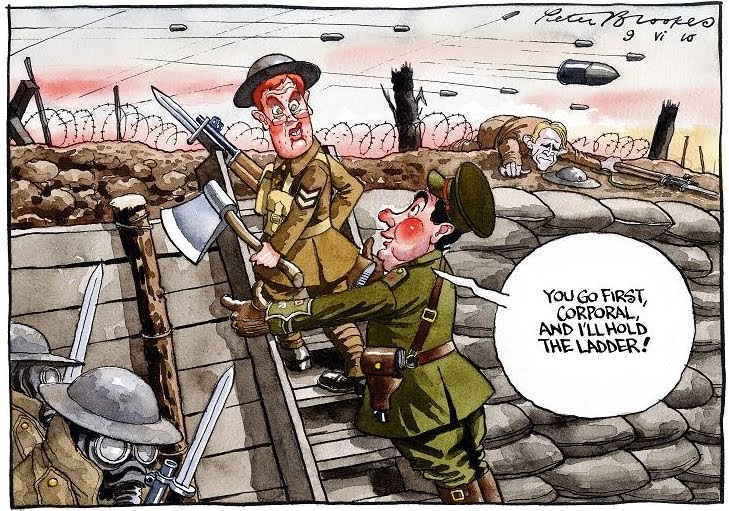Humour is as old as humanity itself. I am not sure if our ancient ancestors, clad in loincloths and whipping up another batch of ochre for their cave paintings, found amusement in the absurdity of life. But they must, sure as faith, be having a laugh at us now as we launch from one accusation of racism to another. They must think it very amusing that we now rate our value as humans on how long we have lived in a country when, back in the day, no such thing as a country even existed.
We were all part of the same brew, just painted with a different dye.
But back to humour, the point of today's ramblings.

From the jesters of medieval courts to the stand-up comedians of today, humour has evolved, adapting to the changing times and shaping our perception of the world around us.
In the ancient world, jesters, or court fools, ruled the roost. These early clowns tickled the royal fancy with their quick wit, physical comedy, and biting satire. They dared to mock the powerful, challenging the status quo with a jingle of bells and a jester's cap. Their humour served as a pressure valve, releasing the tension that often surrounded the halls of power.
But they were also incredibly powerful in their own right:.... up until they cracked the wrong joke and then it was " off with his head " and another resounding round of " Jingle Bells " bit the proverbial dust.

By the 18th and 19th centuries, humour got fancy. Think Voltaire cracking witty one-liners or Mark Twain dropping truth bombs disguised as jokes. Humour became a tool for societal critique. Twain once quipped, “Against the assault of laughter, nothing can stand,” proving that a good chuckle is more powerful than a sword...or at least less messy.
We here on Patriotrealm call a good joke a " gladwrapper" as one needs gladwrap over the computer keyboard to protect it from a sudden explosion if the reader happens to be midway through a cuppa.
In World War One, we saw the emergence of trench humour - the laugh at the horror of war.
The muddy trenches, the deafening sound of artillery, and soldiers clinging to their sanity amidst the unimaginable. In those desperate times, humour emerged as a coping mechanism, a way to find light in the darkest of places.

World War One was a conflict unlike any the world had seen before. The soldiers found themselves entrenched in a brutal and relentless war, facing constant danger, fear, and the loss of comrades. It was a war that defied comprehension, and yet, humour somehow managed to find its way through the barbed wire and shell craters.
Trench humour was a unique blend of irony, dark wit, and absurdity. It allowed the soldiers to momentarily escape the grim reality and create a sense of camaraderie amidst the chaos. It was a coping mechanism, a way to preserve sanity in the face of unimaginable horrors.
In the trenches, soldiers would find humour in the absurdity of their circumstances. They would crack jokes about the constant rain turning their trenches into muddy swamps, or about the rations that left much to be desired. They would mock the futility of the war itself, poking fun at the grandiose promises made by their commanders.

Gallows humour became a way to navigate the constant presence of death. Soldiers would jest about the ever-present danger, making light of the uncertainty that hung in the air. Jokes about the enemy, the officers, and the deplorable conditions served as a release valve, allowing them to momentarily escape the grim reality they faced.
But trench humour was more than just a means of distraction; it was a way to assert control over their circumstances. In the face of overwhelming powerlessness, humour became a weapon. Soldiers would use sarcasm and satire to subvert authority, finding solace in the fact that they could, at least for a moment, challenge the hierarchy that governed their lives.
Trench humour was not without controversy, of course. Some questioned the appropriateness of finding humour in such dire circumstances. But it's important to understand that humour in the trenches was not born out of callousness or indifference. It was a survival mechanism, a way to retain a semblance of humanity in an inhumane situation.

In a very mild but not dissimilar way, we find ourselves in the trenches of societal meltdown. All around us, our world is either imploding, exploding or turning into a quagmire of rat-infested corruption, ruled over by incompetent and greedy leaders who sit back behind the action and spew forth more orders for which we will pay with our lives.
The horror of child trafficking; gender-bending policies that defy logic; racial divides; insane climate change policies; wars that are illogical and profit none but the shareholders in the industry of war; class wars and barrages of stupidity; drug abuse and general destruction of normality.
In many ways, trench humour was a testament to the indomitable spirit of the soldiers. It showcased their resilience and their refusal to succumb to despair. It provided a brief respite from the horrors of war and reminded them that, even in the darkest of times, laughter could still be found.
From the giggles of little babies to the hearty hoots of adults, laughter transcends language and cultural barriers, suggesting its innate presence in our species.
Numerous studies have highlighted the physiological and psychological benefits of laughter. When we laugh, our brains release endorphins, neurotransmitters that promote feelings of pleasure and well-being. These endorphins help reduce stress, alleviate pain, and create a sense of euphoria. It's no wonder that laughter has been called "the best medicine."
Laughter also has positive effects on our cardiovascular health. It increases heart rate and blood flow, providing a brief cardiovascular workout. Research suggests that regular laughter can lower blood pressure, improve vascular function, and reduce the risk of heart disease. In other words, laughter gives our hearts a good, hearty chuckle.
Beyond the physical benefits, laughter plays a significant role in social bonding. It is a powerful social cue, signalling enjoyment, playfulness, and a sense of shared understanding. When we laugh together, it strengthens social bonds, fosters a sense of belonging, and enhances group cohesion. It's no wonder that laughter is contagious, spreading like wildfire in a room full of jovial souls.
Which has gotten me wondering. Is this why they don't like us laughing anymore? Because, let's face it, humour isn't funny anymore. It is so politically correct that it is an embarrassment and an insult to our intelligence and sensibility.
Is it because the powers that seek to control us realise that, in humour, we find common ground?
Ban laughter and you somehow take away the very thing that makes us human. After everything that has happened in the past few years, we can't turn the clock back and become the people we once were. But, if we can get humour back, we might have a fighting chance.
BLOG COMMENTS POWERED BY DISQUS



















































